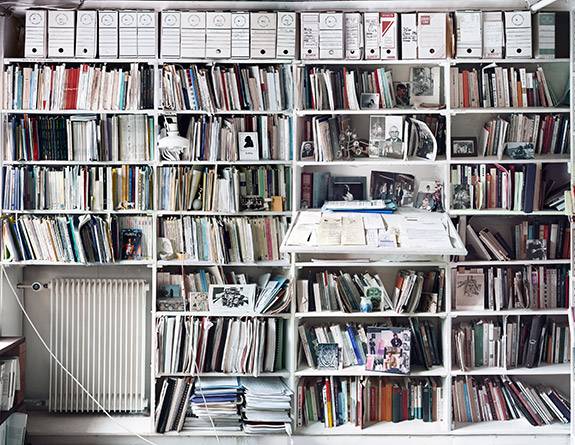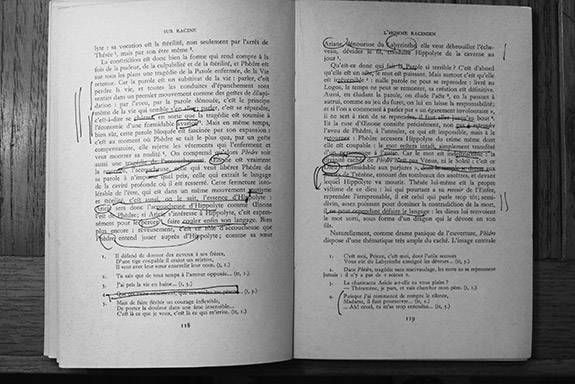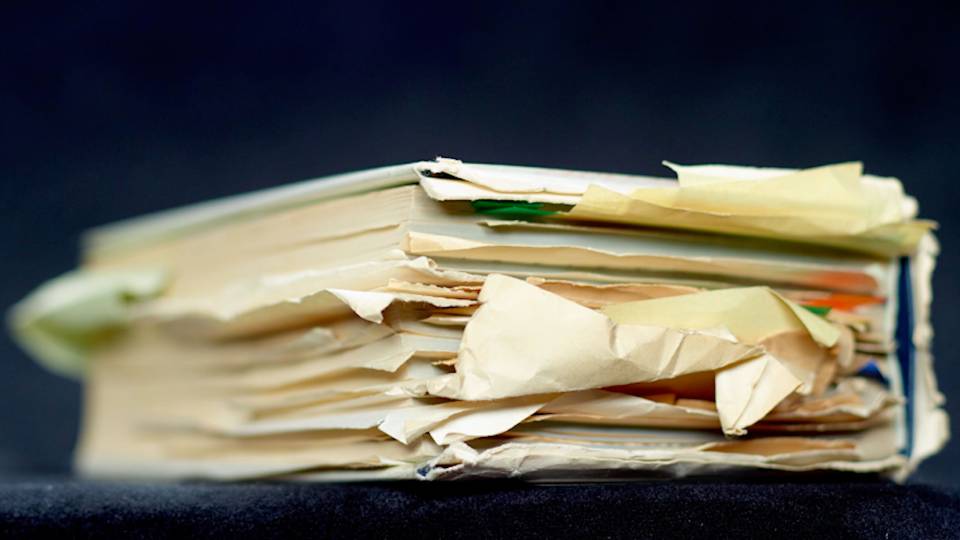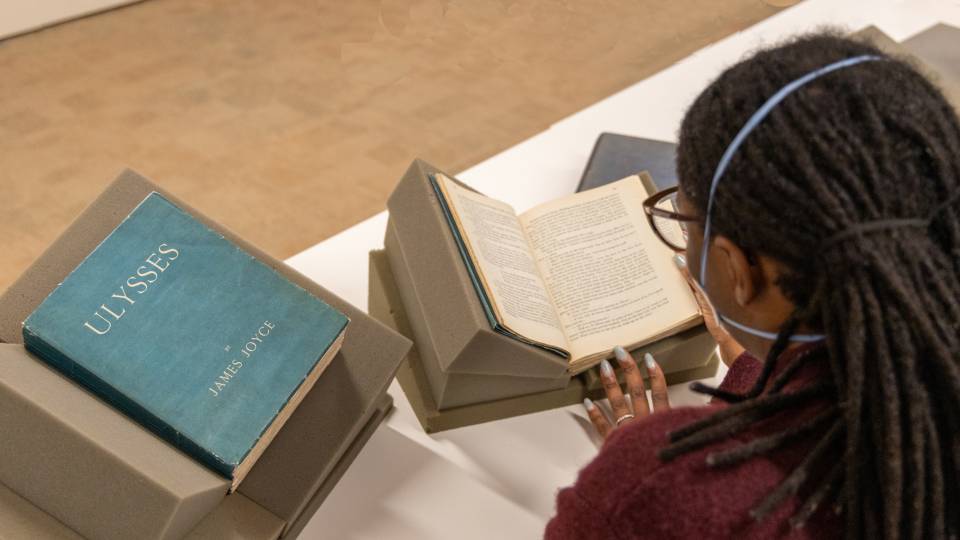The Princeton University Library has acquired the personal working library of philosopher Jacques Derrida, who died in 2004.
Derrida, an Algerian-born French Jewish philosopher, is considered one of the 20th century's most influential thinkers, writers and critics in the fields of literary criticism, philosophy, art and architecture, linguistics, and political theory, among others. He is most widely known for "deconstruction"— a strategy for apprehending texts and political institutions.
Derrida's library, consisting of about 13,800 published books and other materials, represents a lifetime of reading. But for Derrida, the act of reading was not a passive process: he engaged — even grappled — with what he read, covering pages with notes and cross-references, inserting other handwritten materials, quoting and adapting what he read into what he wrote. As Derrida himself said in an interview later in his life, his books bear "traces of the violence of pencil strokes, exclamation points, arrows and underlining."

The Princeton University Library has acquired the personal library of philosopher Jacques Derrida. Above is a view of part of Derrida's library in his home in Ris Orangis, Paris. (Used with permission. ©Andrew Bush, 2001)
Anthony Grafton, the Henry Putnam University Professor of History, said that the great libraries of original and influential scholars "show us those writers at their desks, responding to other minds. Reading marginal notes, we stand at the scholar's shoulder and listen in on the discussion between scholar and author, as it takes place. It is wonderful — in an ironic way that would have appealed to no one more than Jacques Derrida — that scholars and students will be able to reconstruct his part in this great humanistic tradition in Firestone Library."
Hal Foster, the Townsend Martin, Class of 1917, Professor of Art and Archaeology, and co-director of the Program in Media and Modernity, said that "Derrida developed his own thought through a meticulous engagement with other thinkers, past and present, thinkers who at once constitute the Western traditions of philosophy and literature and defy them (indeed they constitute them in part because they defied them). What a boon it is for us at Princeton to have his notes on these thinkers and writers, to see the master of textuality perform, as it were, on other master texts."
After more than a year of discussions and complex arrangements coordinated by the Collection Development Department, and an examination of the collection in Paris by an expert team from Princeton, the Princeton University Library took physical delivery of Derrida's library on March 19. The unpacking, sorting, describing, organizing, preserving and housing of the books and other materials in this collection will proceed as quickly as possible. As they are processed, these materials will be made available to scholars through the Department of Rare Books and Special Collections in Firestone Library.

Derrida's library includes his annotations in books, such as that above on pages of "Sur Racine" by Roland Barthes. (Paris: Editions du Seuil, 1963). Photo: J. L. Logan
"It is so exciting to be able to bring the entire reading world of Jacques Derrida to Princeton, to make these works which were so central to the development of his thinking accessible for new explorations in the archaeology of reading, digital humanities, and other research and pedagogical endeavors of scholars and students," said David Magier, associate University librarian for collection development.
Assistant Professor of French and Italian Katie Chenoweth said, "The acquisition of Jacques Derrida's personal library … makes available to scholars worldwide for the first time the foundational materials of deconstruction — Derrida's reading materials — and the 'traces' of his singular encounter with them."
"How satisfying that [Derrida's] library should come to Princeton," said Michael Wood, the Charles Barnwell Straut Class of 1923 Professor of English and Comparative Literature, Emeritus. "The presence of these books in Princeton not only enriches the archive, it suggests something of the intense, ongoing life an archive may have."





